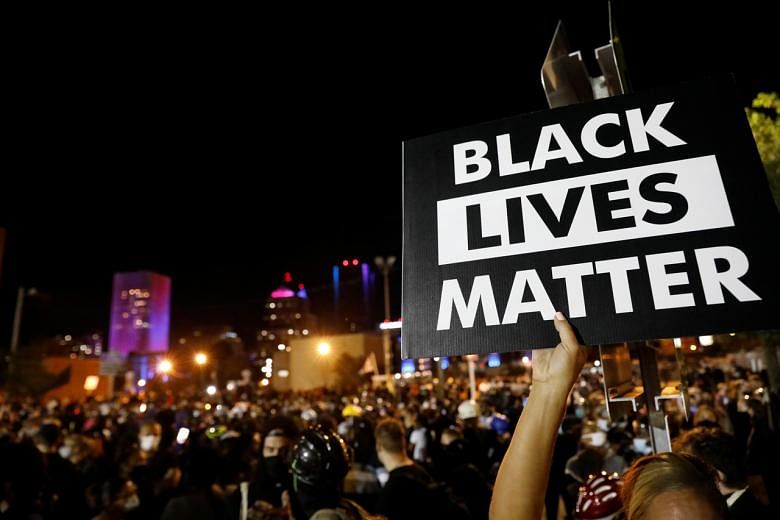BRUSSELS (BLOOMBERG) - The Black Lives Matter movement is set to influence European Union (EU) policies as the bloc's executive arm prepares to unveil its first ever anti-racism action plan.
Citizens face a "reality of ingrained racism" that can no longer be ignored, the European Commission said in the draft seen by Bloomberg. The authority vowed to sue nations that don't apply the bloc's strict racism and xenophobia laws and said it would also review the existing measures to make sure they're tough enough.
"Progress to fight racism and hate in Europe is not good enough, but we hope with time, and more effort, we can change the tide in Europe," Ms Vera Jourova, commission vice-president for values and transparency, told Bloomberg ahead of Friday's (Sept 18) planned release of the document.
"This is the goal of the new action plan and we will not hesitate to act, including by strengthening our legislation and by vigorously enforcing the rules."
The move in Europe comes as the US is reeling over several highly-charged episodes in which police have killed Black Americans, prompting protests in multiple cities. The victims include Mr George Floyd, an unarmed Black man who was killed by an officer in Minneapolis. The officer has been charged with murder.
"These are times when we have to curb our cynicism and we should really welcome this as a very important moment in which we have the EU executive acknowledging that racism is a problem in Europe," said Ms Judith Sunderland, acting deputy director for Europe at Human Rights Watch.
One of the EU's priorities, according to the draft, should be to create a reliable set of data to properly assess the scale and nature of discrimination across the EU.
Compared to data on other grounds of discrimination, such as sex, disability and age, data on discrimination by ethnic or racial origin is scarce. This is partly due to the backlash in many nations after World War II against the keeping of such records.
"Obstacles include problems in establishing a common methodology, with some member states collecting such data while others consciously avoid this approach," the draft says. "As a result, many surveys focus on the perception of discrimination or use proxies such as citizenship or country of birth."
The commission wants "a new approach on equality data collection" and will organise a roundtable to find ways toward a more harmonised collection of data.
"Action plans in general, while they are never properly and fully implemented, send a message that this is an issue that we care about" and lay out a roadmap and specific benchmarks, Ms Sunderland said.

